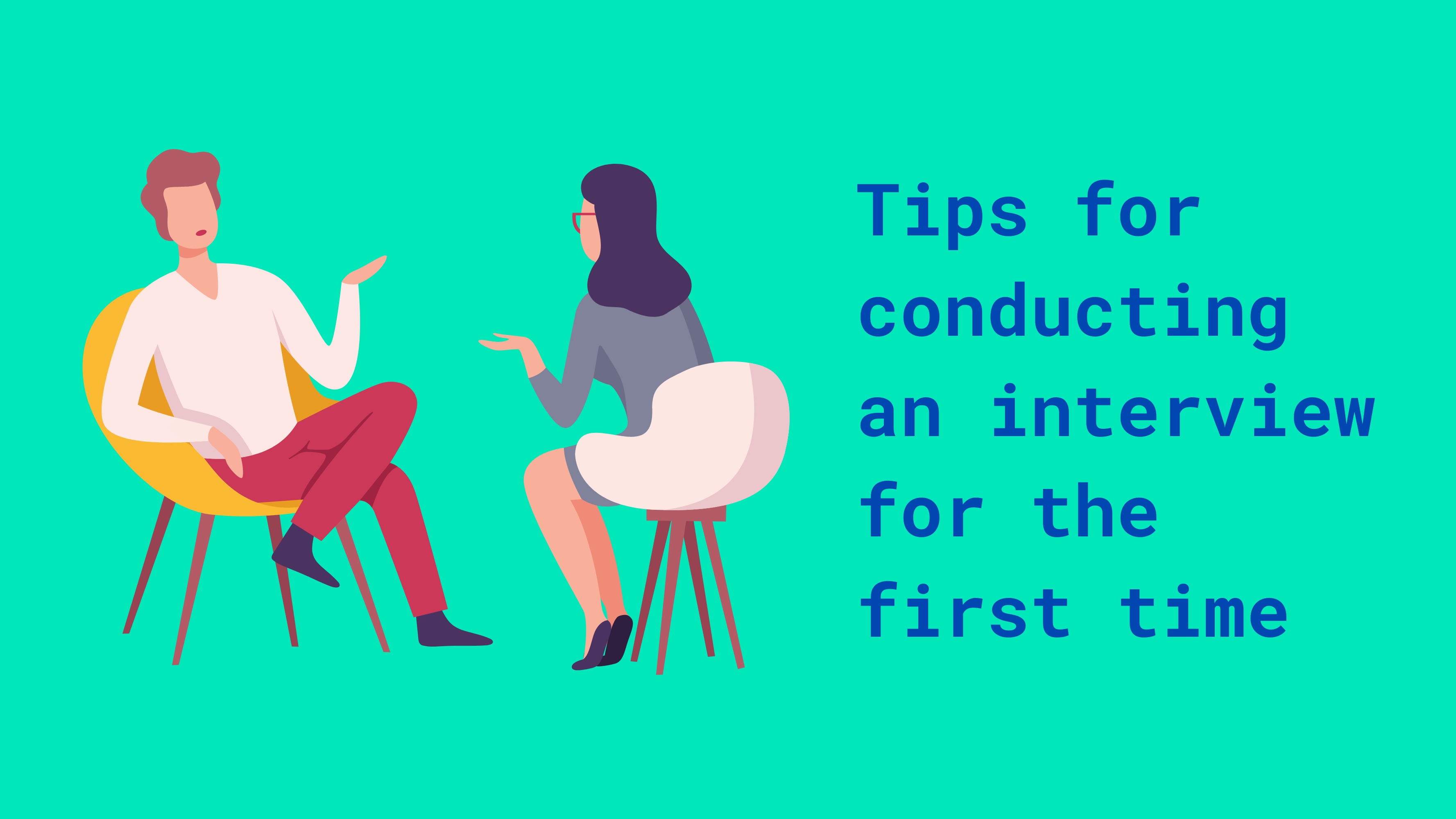
Tips for conducting an interview for the first time
You’ve never been the interviewer in a job interview and now all of a sudden you’ve been told that you’re running the interview process for your work’s new hire. How are you feeling? Nervous? Excited? Out of your depth? All of the above?
We all have plenty of experience being interviewed, but when you’re in the middle of an interview, do you really pay attention to how the interview is structured or ponder why they’re asking you certain questions. No, you’re too busy thinking up answers and trying to impress them! So, when you don’t really know what you’re doing, how are you meant to tell if someone is right for the role beyond ✨good vibes✨?
Hopefully you’re conducting the interviews with someone who has been there and done that, so they can guide you through the process, but this isn’t always the case. If not, follow our tips to succeed as an interviewer.
Prep is key
Familiarise yourself with the candidate’s resume, portfolio (if relevant) and the job requirements. Come up with a list of questions based on their resume and experience and what the role will require. We recommend having a set of questions that cover these topics:
- Background and experience
- Technical and job-specific skills
- Problem solving and critical thinking
- Teamwork and collaboration
- Communication and interpersonal skills
- Adaptability and learning
- Motivation and career goals
- Cultural fit
If you’re working with a recruiter, they can probably give you a few questions to help you get the ball rolling – after all, they spend many hours of the day asking candidates questions!
via GIPHY
Be confident, kind and open
We know candidates usually have a few nerves going into an interview. You might feel the same way, being on this side of the interview process for the first time and not being super confident about what you’re doing. We’re here to tell you to push those nerves away and fake it! If you’re confident, open and welcoming, it’ll relax the candidate, give them a good impression of you and the culture of your company.
Consider starting the interview with an ice breaker question. Ask them how their weekend was/what their weekend plans are, what they’ve got on for the rest of the day. It’ll help them ease into the interview – and it might help you relax too. Overall, just be kind and think about how you would want to be treated in an interview. And then do that.
Be an active listener
When the candidate is speaking, pay close attention to what they’re saying. This may seem obvious, but it’s easy to move on to thinking about the next question you need to ask or get distracted by your growling stomach. Be present in the moment.
You want to show that you’ve understood what they’ve said, and being able to repeat back what they’ve said to you or asking a follow up question ticks this box. Taking a few notes also helps you remember and grasp what they’re saying, plus they’re great to refer back to when it comes to making a decision about who to hire.
Be like Oprah via GIPHY
Brainstorm answers
Don’t forget to switch your mindset to the second portion of the interview – where the candidate gets to ask you questions. It can be really easy to focus all your time and energy prepping for the first part and not even think about this section. These questions – and the answers you give – are important to candidates and may influence their decision, so make sure you prep for this too.
Think of common questions people usually ask at the end of a job interview or some of the questions you’ve asked over the years and brainstorm answers to these. You’re probably not going to cover every question that the candidate asks, but at least you’ll be able to confidently answer a few, rather than umming and ahhing your way through it.
Consider more than just their skills
By the end of the interview process, you should hopefully have a pretty good idea of how each candidate will perform in the role, however that’s not the be all and end all. It’s important to consider how they’ll fit into your team and company culture and whether they’ll add to it, as well as their growth pathway – can they already do almost the entire job? Will they be bored and look for a new opportunity quickly?
Once you’ve considered all of these factors, you’re ready to make your decision. And if you’re not 100% sure, talk it over with your manager, colleagues or someone else you trust – using someone as a sounding board will hopefully help clarify things. Good luck!
Need some more advice about leading a job interview? Looking to put what we’ve shared into practice with a new hire? Get in touch with our team today at hello@creativenatives.com.au.

